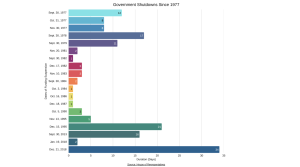An explanation of the Texas Heartbeat Act

A graphic of Texas.
November 23, 2021
Anna and Molly are eighth graders at Mary Ellen Henderson Middle School and write for the middle school publication, Husky Prints. Their latest edition will be published in the coming weeks.
What is The Heartbeat Act?
On September 1, Texas enacted a new law, the Heartbeat Act, which prohibited abortions once the fetal heartbeat is detected, often as early as six weeks into a woman’s pregnancy.
Abortion is a medical procedure to end a pregnancy. Any woman age 14 to 49 now cannot have an abortion in Texas after six weeks. There are very narrow exceptions in the rule, but unlike many previous restrictions on abortion, there are no exceptions for assault or incest. The only exception provided is for cases where a serious threat to the mother’s health is present. This law was put into effect in a very uncommon way, allowing citizens to sue anyone who aided the abortion, instead of banning the abortion itself.
“The language does not cover every instance in which a woman’s health might be at risk,” said Dr. Jennifer Villavicencio of the American College of Obstetricians and Gynecologists. “Health providers will be very conservative about interpreting the law, because they don’t want to cross a line.”
The Heartbeat Act also makes it possible for any citizen to sue anyone who assisted with an abortion after six weeks into the pregnancy. For example, a clinic that conducted an abortion or even someone who drove a woman to an abortion clinic can be sued. However, the woman who received the abortion can not be sued herself. Therefore, while it is still technically legal to seek out an abortion, it is impossible to be involved with one without getting sued. Because of this, many abortion clinics in Texas have closed altogether.
How might this law affect Roe v. Wade?
In Roe v. Wade (1973), the Supreme Court determined that criminalizing abortion was a breach of a woman’s fundamental right to privacy. The court ruled that governments could not prohibit abortions during the first trimester of a pregnancy. The Heartbeat Act, and similar laws, are designed to challenge Roe v. Wade.
What are the effects?
According to Planned Parenthood and Whole Woman’s Health, 85 to 90 percent of people who obtain abortions in Texas are at least six weeks into pregnancy, meaning the law would prohibit nearly all abortions in the state. The length of a pregnancy is measured from the first day of one’s last menstrual cycle and usually isn’t detectable until around four weeks later, meaning it’s highly likely that people seeking abortions wouldn’t know they might choose to seek them until after six weeks.
If most or all abortion care in Texas is shut down, the average one-way driving distance to a clinic would increase drastically. According to the Guttmacher Institute, a research organization that studies reproductive health rights, the driving distance would increase twentyfold, from 12 to 248 miles.
However, not everyone will be able to obtain abortions outside Texas because of financial challenges. The University of Texas at Austin’s Texas Policy Evaluation Project estimates that under the law, 80 percent of Texans seeking abortions wouldn’t be able to obtain them in the state.
Adding to the difficulty, Texans who need medical services are now rushing to Oklahoma, New Mexico, Colorado, and Kansas, making it harder for people in those states to get access to abortions as well. More than that, there is the question of how the formation of this law can be applied to other laws. By making something a civil case instead, it could allow laws to be passed that would have been previously deemed unconstitutional. This idea could be applied to gun control, pollution, LGBTQ+ marriage, and other controversial topics.
What has been the pushback?
The United States Justice Department sued Texas over this new law on September 9, claiming that the Heartbeat Act is “in open defiance of the Constitution.” While there is no clause in the Constitution protecting abortion right, The Heartbeat Act contradicts Roe v. Wade, which stated that abortion is a part of a women’s right to privacy and that banning abortion breaches that right. A virtual hearing took place on Friday, October 1 before Judge Robert Pitman of the U.S. District Court for the Western District of Texas.
The state of Texas argued back that, because the law is left up to private citizens to enforce the law, it is constitutional. Protestors marched in various cities across the country demanding that this law be derided, with signs such as “my body my choice” and “keep abortion safe and legal.” In response, anti-abortion protesters have also started protesting to keep the law.
As of publication, it is unclear where the Supreme Court stands on this issue.









